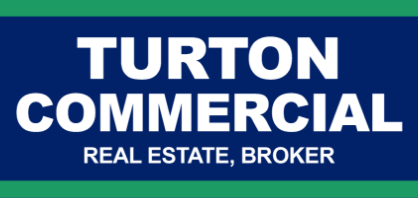US Census Bureau
United States Department of Commerce
United States Small Business Administration
New Jersey Business and Industry Association
New Jersey Commerce Commission
New Jersey Small Business Development Center
New Jersey Motor Vehicle Commission
Monmouth County Government
Ocean County Government
New Jersey Government
Helpful Travel Information
Acre
A measure of land equal to 43,560 square feet; 4,840 square yards; 4,047 square meters or 160 square rods.
Agent
An individual who represents a seller, a buyer or both in the purchase or sale of real estate.
Amortization
The schedule of loan payments that establishes the amount of payment to be applied to the principal and the amount to be applied to interest, usually on a monthly basis, for the full term of the loan.
Annual Percentage Rate
The TOTAL interest rate of a mortgage, including the stated loan interest as well as any upfront interest paid in securing the loan. The APR will invariably differ from the mortgage rate quoted due to the inclusion of these items.
Appraisal
An estimate of value of a Real Estate property by a professional third party. Virtually all non-owner financed mortgages will require an appraisal and is generally paid for by the buyer.
Assessment
The value of a property as determined by the local tax jurisdiction which is used to determine the amount of your property taxes.
Bylaws
Rules and regulations adopted by an association
Capital Gains
Profits realized from the sale of assets like real estate
Capitalization
The conversion of future income to be derived from an investment property into an estimate of the present value.
Capitalization Rate
The rate of return a property will produce on the owner’s investment.
Cash Flow
The net spendable income from an investment after deducting expenses.
Certificate of Occupancy (CO)
Document issued by a municipal authority stating that a building complies with building, health and safety codes and my be occupied.
Chattel
Moveable personal property
Closing
The process that effects the final transfer of the deed from the seller to the buyer, as well as finalize all aspects of the mortgage of the property.
Commission
Payment to a broker for services rendered, such as in the sale or purchase of real property
Contingencies
These are conditions–or “”safety valves”” written into Real Estate offers and contracts to prevent a buyer from being forced to buy a house that is unsatisfactory–either structurally or financially. Examples of contingencies are “This contract is subject to the buyer obtaining a satisfactory whole house inspection.” or “Subject to the buyer being able to obtain a mortgage”.
Contract
An agreement entered into by two or more legally competent parties by the terms of which one or more of the parties, for a consideration, undertakes to do or refrain from doing some legal act or acts.
Corporation
An entity or organization created by operation of law whose rights of doing business are essentially the same as those as an individual.
Deed
The document that, when recorded with your local government, determines ownership of a property. Transferred from seller to buyer at closing.
Equity
The difference between the value of a property and the total of any outstanding mortgages or loans against it.
Escrow
Funds held in reserve both prior to closing (for example the earnest money and deposit) by a third party and after closing by the mortgage company to pay future taxes and homeowners insurance. In some areas, “”escrow”” also refers to the closing process.
Fixed Rate Mortgage
A mortgage loan where the interest rate is established at its origination and continues unchanged through the life of the loan.
Foreclosure
The process through which a lender takes back property from a defaulting owner and re- sells it.
Interest
That portion of a mortgage payment that is the “”charge”” for using the lender’s funds.
Lien
A legal claim against a piece of property that can prevent it from being sold unless the lien is satisfied (paid off). Liens can be filed by unpaid contractors or other debtors in a legal process so that they will be paid when a property is sold.
Listing
A property for sale by a Real Estate Brokerage and Agent.
LTV (Loan To Value)
The ratio of the amount of the mortgage as a percentage of the value of the property.
Pre-Qualification
The first stage of a mortgage application where the lender will run a basic credit report and determine your debt to income ratio in order to see how much mortgage you qualify for.
Principal
The amount borrowed for a mortgage loan. Your monthly mortgage payment will be applied to both the interest and the principal (be assured, though, that the lions share will go to the interest portion in the first years of the loan).
Property Tax
An annual or semi- annual tax paid to one or more governmental jurisdictions based on the amount of the property assessment. Generally paid as part of the mortgage payment.
Recording
The act of entering deed and/or mortgage information into public record with your local government jurisdiction.
Title Insurance
Protects your title– your ownership rights– from claims against it. Paid at closing, title insurance may be the responsibility of the buyer, the seller, or both, depending on what is traditional in your locality.
Zoning
Laws that govern specifically how a zoned area can be used. For example, an area may be zoned for single family residential, condominiums, commerical or retail, or a mix of two or more uses.
